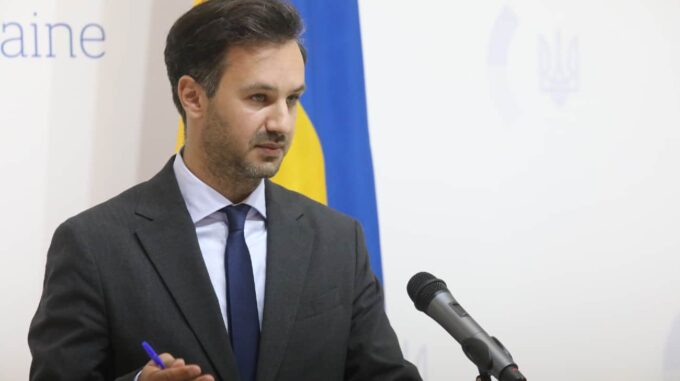Ukrainian MFA Officially Reports US on Violation of “Energy Ceasefire”: Diplomacy on the Edge of Uncertainty

The Ministry of Foreign Affairs of Ukraine has issued an important statement that could have far-reaching consequences for the future course of the Ukrainian-Russian conflict and international diplomacy. According to MFA spokesperson Georgiy Tykhyi, Kyiv did not limit itself to public statements or indirect signals but also officially relayed a full list of violations committed by the Russian side of the so-called "energy ceasefire," which was established after complex negotiations in Saudi Arabia. These negotiations, held in Riyadh, Saudi Arabia, on March 24, aimed to find a way to reduce escalation in the energy sector, a key area for Ukraine, Europe, and global security overall. The talks involved Russian and American delegations and primarily focused on halting or reducing damage to Ukrainian energy facilities, including energy production plants and main pipelines. As Tykhyi told "European Pravda," the Ukrainian side, after discussions, officially recorded and transmitted to the United States several dozen documentary confirmations of violations committed by Russia under the "energy ceasefire" agreement. He emphasized that this refers specifically to an official written list presented to international organizations, diplomats, and, most importantly, the American side. "We regularly inform our partners, including the U.S., about any violations of the agreements on ceasefires or their restrictions. This also applies to the 'energy ceasefire,' which was achieved through international diplomacy efforts. Providing this data is our duty and a transparency measure. We rightly believe that partial ceasefire or truce periods are untrustworthy if systematically violated. Therefore, we believe a fully unconditional and long-term ceasefire is necessary, which would help reduce tensions and prevent an energy crisis," the diplomat noted. It is particularly important to highlight that this information was Ukraine’s response to ongoing violations of agreements by Moscow since the start of the "ceasefire," officially enacted on March 25. At the same time, this period continues to raise many questions and controversies within the global community, as Russia, according to Ukrainian diplomats, systematically breaches commitments, using the situation to escalate tensions further and exert pressure on Ukrainian infrastructure. Recall that the negotiations between Russian and American delegations in Riyadh concluded on March 24. These talks are considered one of the attempts to reach a partial compromise regarding the cessation of hostilities, especially at Ukrainian energy facilities. However, later reports indicated significant disagreements between Ukraine, Russia, and the U.S. over the list of targets subject to a ceasefire, including in the energy sector. According to Ukrainian diplomatic sources, Ukraine approved a list of energy facilities with the U.S. that should be protected from Russian attacks—part of the so-called "partial ceasefire." However, in reality, this did not align with Russia’s conditions, which demand a more limited and separate agreement format. Details on how negotiations proceed and how many violations have already been recorded are revealed in publications emphasizing that the peace agreements in Riyadh remain complicated and still highly uncertain. Thus, Ukrainian diplomacy continues active dialogue with international partners, emphasizing the need to adhere to agreed-upon commitments and prevent new energy crises caused by Russian violations. Despite ongoing regional tensions and the complexities of negotiations, Kyiv insists that only a fully unconditional ceasefire, strict oversight of violations, and active international support can help Ukraine overcome the crisis and stabilize its energy situation. While Russia continues to demonstrate its intentions to ignore agreements on the international stage, Ukraine and its allies are working persistently to convey the true extent of violations to the world and to stand up for their position in difficult diplomatic negotiations. According to diplomats, the future of Ukraine and its energy security in the coming months depends heavily on the level of international support and the ability to defend its interests.

